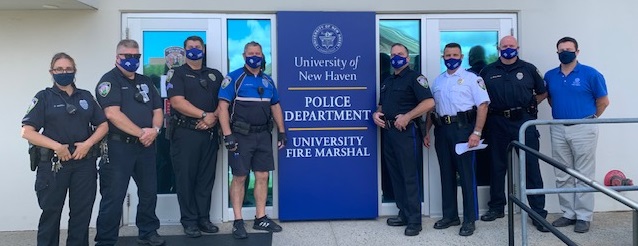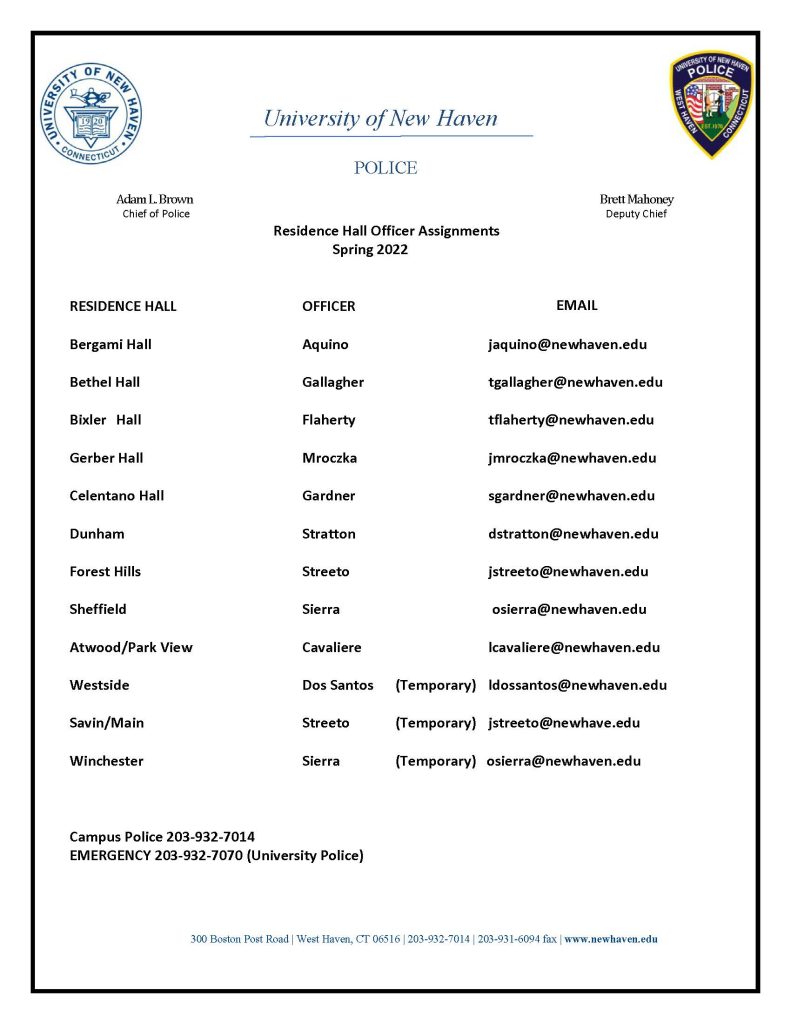Residence Hall Officer Program

Community policing is based on strong geographical and partnership components. The neighborhood beat officer and citizen interactions are essential to its success. In the university setting these “neighborhoods” can most readily be identified as the residence halls. Therefore, University PD assigned officers as liaisons to specific resident halls in order to develop that “neighborhood” officer relationship.
Residence Hall Officer Program Specifics
- Each patrol officer is assigned a resident hall; ORL staff and resident students are notified each officer’s assignment
- The officers’ patrol in their assigned “neighborhood” on regular basis and note/report any safety conditions, potential crime/disorder problems, etc.
- Officers periodically meet with RDs and RAs in their resident halls
- Just as a beat officer gets to know residents of his/her beat, officers get to know student residents in their dorms
- Officers attend events/meetings that take place at their Halls.
- Officers receive copies of any reports of incidents that occur in their assigned “neighborhood” to keep abreast of emerging issues and engage in problem solving using multiple resources including students, staff, and referrals to other agencies when appropriate
- Officers are aware of university police safety and crime prevention programs and either are able to present programs to students/staff upon request or refer to the proper personnel.
- Officers act as mentors to our students many of whom are actively seeking education and careers in public safety
- Officers act as a resource in the prevention of crime, addressing disorder issues and reducing the fear of crime
Our Core Philosophy: Community Policing
Community policing is a philosophy that promotes organizational strategies that support the systematic use of partnerships and problem solving techniques to proactively address the immediate conditions that give rise to public safety issues such as crime, social disorder, and fear of crime.
Community policing focuses on crime and social disorder through the delivery of police services that includes aspects of traditional law enforcement, as well as prevention, problem solving, community engagement, and partnerships. The community policing model balances reactive responses to calls for service with proactive problem solving centered on the causes of crime and disorder. Community policing requires police and citizens to join together as partners. The elements of this model are community partnership, problem solving, and organizational transformation.
In a Campus Public Safety setting this extends to the role of working with the community to prevent, prepare, plan, respond to, mitigate and recover from disasters, crises and other emergency situations.
Community policing is particularly attractive in a university setting as colleges are traditionally open environments where a culture of inquiry and discourse is fostered. Opportunities for partnership and problem solving are particularly valued on college campuses. This university and its police department are well suited to this environment do to the University’s mission of experiential education and our strong involvement in Criminal Justice, Public Safety/Security and Emergency Management disciplines. The opportunities for partnership and collaborative problem solving are endless.

